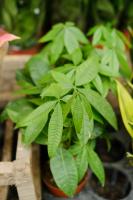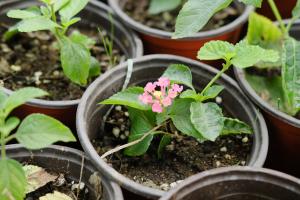What Plant Did Jesus Curse - The Fig Tree
One of the most interesting stories in the Bible is the incident when Jesus cursed a fig tree. This story is recorded in the Gospels of Matthew and Mark. It is a fascinating story that has puzzled many people over the years. In this article, we will explore the meaning behind this story and what plant Jesus cursed.
The Story
The story begins with Jesus and his disciples walking to Jerusalem. Along the way, Jesus saw a fig tree with leaves on it, and he went to see if it had any fruit. However, when he got to the tree, he found no fruit, only leaves. Jesus then cursed the fig tree, saying, "May no one ever eat fruit from you again" (Mark 11:14).
The next morning, as Jesus and his disciples were walking by the same fig tree, they noticed that it had withered away to its roots. The disciples were amazed, and Jesus used this opportunity to teach them an important lesson about the power of faith.
The Meaning
The story of the fig tree is not just an interesting supernatural event. It has deep theological meaning that is applicable to our lives today. There are several interpretations of the story, but one of the most common is that it represents the failure of Israel to bear fruit for God.
In the Old Testament, the fig tree is often used as a symbol of Israel. In Jeremiah 8:13, God says, "When I wanted to gather them, declares the Lord, there are no grapes on the vine, nor figs on the fig tree; even the leaves are withered." This passage is a warning to Israel that they had failed to produce good fruit for God.
Jesus, in cursing the fig tree, was making a prophetic statement about the future of Israel. He was warning them that if they did not produce good fruit for God, they would face judgment. The fact that the fig tree withered so quickly after Jesus cursed it was a sign of the imminent judgment that would come upon Israel.
The Plant
So, what plant did Jesus curse? The answer is a fig tree. In the Middle East, the fig tree was a common sight, and it was often grown for its fruit. Fig trees are known for producing an abundance of fruit, but in this case, the tree had no fruit despite having leaves. This was a clear sign that the tree was not living up to its expected purpose.
The reason Jesus cursed the fig tree was not because of the lack of fruit, but because it represented Israel's failure to produce good fruit for God. The cursed fig tree was not just any tree, but one that had a significant symbolic meaning.
Conclusion
The story of the cursed fig tree is a powerful reminder of the need to produce good fruit for God. It is a warning that we should not just have leaves, but also bear fruit. We should not just go through the motions of religion, but truly live for God.
So, the next time you see a fig tree, remember the story of Jesus cursing the fig tree and ask yourself if you are bearing good fruit for God. Let us strive to be a people who produce good fruit, and not just leaves.

 how many times do yo...
how many times do yo... how many planted tre...
how many planted tre... how many pine trees ...
how many pine trees ... how many pecan trees...
how many pecan trees... how many plants comp...
how many plants comp... how many plants can ...
how many plants can ... how many plants and ...
how many plants and ... how many pepper plan...
how many pepper plan...






























